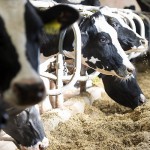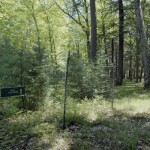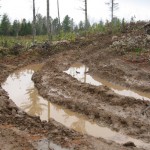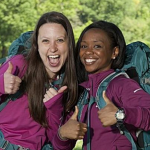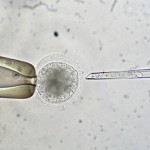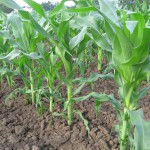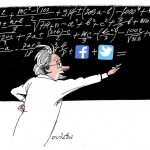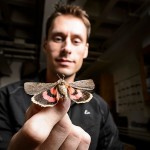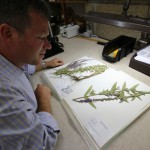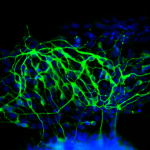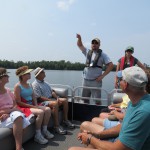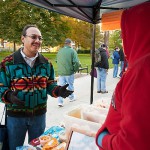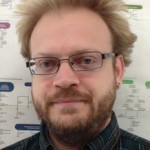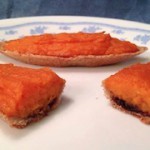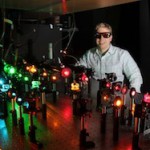Tag College of Agricultural and Life Sciences
UW experts forecasting 2015 Wisconsin agriculture trends
In 2014, the total net farm income in Wisconsin reached an all-time high of more than $4 billion, but agricultural experts at the University of Wisconsin–Madison are predicting some changes in 2015. Bruce Jones, a professor of agricultural and applied economics at the University of Wisconsin–Madison, will be among a handful of UW–Madison and UW-Extension experts to recap the status of Wisconsin’s agricultural enterprise in 2014 and discuss trends developing for 2015 at the Wisconsin Agricultural Economic Outlook Forum on Wednesday, Jan. 21.
Deer account for almost half of long-term forest change, study finds
A study released this week has linked at least 40 percent of species changes in the forests of northern Wisconsin and Michigan over the past 60 years to the eating habits of white-tailed deer.
Muddy forests, shorter winters present challenges for loggers
Stable, frozen ground has long been recognized a logger’s friend, capable of supporting equipment and trucks in marshy or soggy forests. Now, a comprehensive look at weather from 1948 onward shows that the logger’s friend is melting. The study, published in the current issue of the Journal of Environmental Management, finds that the period of frozen ground has declined by an average of two or three weeks since 1948.
‘Amazing Race,’ amazing comeback
It wasn't just an "Amazing Race" for Amy DeJong and Maya Warren. It was an amazing victory -- and an amazing comeback.
Neal First, whose work led to cattle cloning, dies at 84
Emeritus Professor Neal First, a pioneer in cattle reproduction and cloning who studied animal physiology at the University of Wisconsin–Madison for 45 years, died Nov. 20 from complications of cancer.
New studies power legacy of UW–Madison mitochondrial research
Dave Pagliarini recently published two studies shedding more light on coenzyme Q and how it’s made, one in the Proceedings of the National Academy of Science (PNAS) in October and another today in Molecular Cell.
Collaboration yields new organic sweet corn variety
When the time comes for Wisconsin’s organic farmers to decide which crops to plant next year, they’ll have a tasty new variety of sweet corn — with a particularly sweet name — among their choices. The new variety, called “Who Gets Kissed?,” is the first in a series of organic, open-pollinated sweet corns being developed through a plant-breeding project led by researchers at the University of Wisconsin–Madison and the Organic Seed Alliance (OSA). Farmers and professional breeders are also involved.
New process transforms wood, crop waste into valuable chemicals
Scientists today disclosed a new method to convert lignin, a biomass waste product, into simple chemicals. The innovation is an important step toward replacing petroleum-based fuels and chemicals with biorenewable materials, says Shannon Stahl, an expert in "green chemistry" at the University of Wisconsin–Madison.
Wisconsin’s new ‘bug guy,’ insect detective arrives on campus
His favorite insect is one he has actually never seen alive in the wild. It lives on snowfields and glaciers in the American West, aptly named an ice crawler. But PJ Liesch, the University of Wisconsin–Madison’s new “bug guy,” continues to search for it. “I’ve been out West looking for them a couple of times and haven’t had any luck, so they’re kind of one I have on my bucket list, just to see one of those out in the wild,” says Liesch. The insect specialist officially took over as manager of the UW–Madison Insect Diagnostic Lab this summer.
Researchers study vital ‘on/off switches’ that control when bacteria turn deadly
No matter how many times it’s demonstrated, it’s still hard to envision bacteria as social, communicating creatures. But by using a signaling system called “quorum sensing,” these single-celled organisms radically alter their behavior to suit their population. Helen Blackwell, a professor of chemistry at the University of Wisconsin–Madison, has been making artificial compounds that mimic the natural quorum-sensing signals, including some that block a natural signal from binding to its protein target.
Project prepares collection for 21st-century challenge of invasive species
At the Wisconsin State Herbarium, director Kenneth Cameron is spearheading a new, three-year project to “digitize” images and data on aquatic and wetland plants, mollusks and fish from the Great Lakes basin. The $2.5 million grant from the National Science Foundation will also be disbursed to natural history museums at UW campuses in Stevens Point, Milwaukee and La Crosse, and in every other Great Lakes state. Together, these institutions expect to digitize 1.73 million specimens related to Great Lakes invasives.
In directing stem cells, study shows context matters
In a new study, a team of researchers from the University of Wisconsin–Madison has added a new wrinkle to the cell differentiation equation, showing that the stiffness of the surfaces on which stem cells are grown can exert a profound influence on cell fate.
No one-size-fits-all approach in a changing climate, changing land
As climate change alters habitats for birds and bees and everything in between, so too does the way humans decide to use land. Researchers at the University of Wisconsin–Madison and Aarhus University in Denmark have, for the first time, found a way to determine the potential combined impacts of both climate and land-use change on plants, animals and ecosystems across the country.
Yeast researcher, Chris Hittinger, named Pew Scholar in Biomedical Sciences
A University of Wisconsin–Madison researcher, well known for his work studying yeast fermentation, has been named a Pew Scholar in the Biomedical Sciences by the Pew Charitable Trusts.
UW students hope to “wok” and paddle to national food contest victories
One team of UW–Madison food science students hopes to "wok" away with a victory, while the other aims to cruise via canoe, as they compete for top honors in two national collegiate food product development competitions held June 21-23 during the Institute of Food Technologists Annual Meeting and Food Expo in New Orleans.
Shaw awards go to two UW researchers
One scientist studying how HIV spreads in the body and another examining cellular machinery and its role in disease have earned funding from the Greater Milwaukee Foundation to advance their research.

